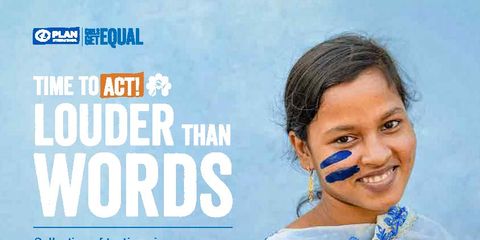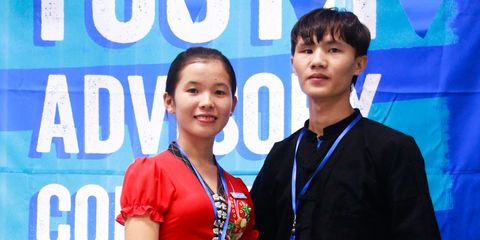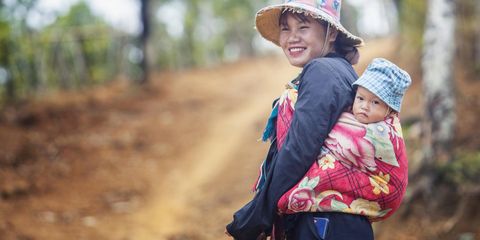The Light Web: The online platform keeping girls away from the dark web and preventing child marriage
As the global pandemic continues to force people to stay in their homes, most have channeled their attention to the online realm, where they may find solace and social interaction to alleviate their isolation. Yet the internet is also a vast space where limited restrictions exist, and limitless web surfing can exacerbate the dangers lurking in dark corners of the web, especially for young people in places like Vietnam.
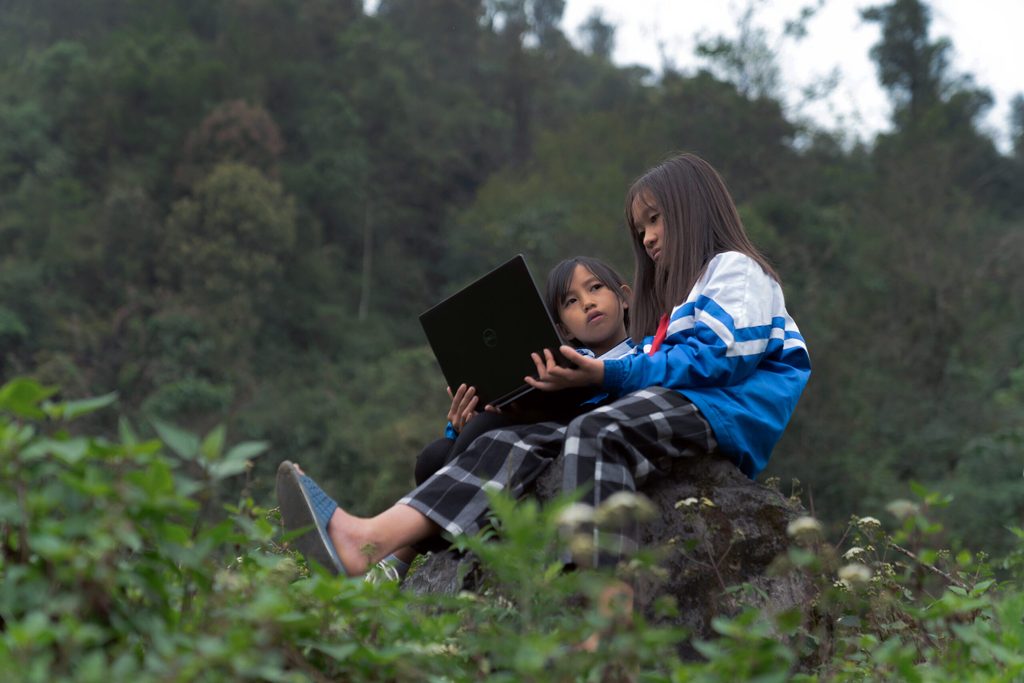
Many young people in Vietnam’s rural communities lack the digital awareness and literacy to navigate the complex online space. Accepting a chat request from a stranger or a thoughtless click on an unknown link can start the journey from curiosity to online trafficking, abuse, or child marriage.
Digital spaces: the good and the bad
In Mai’s village, she has seen the dangers that digital spaces can bring firsthand.
“In my village, many boys and girls make friends online and fall in love virtually. Then they meet each other outside, get pregnant, and drop out from school at age 14 or 15. It’s become very common now.”
Alarmingly, ten million more girls are at risk of child marriage worldwide within the next decade due to the pandemic. Digital interactions will certainly contribute to this trend.
“In my village, many boys and girls make friends online and fall in love virtually. Then they meet each other outside, get pregnant, and drop out from school at age 14 or 15. It’s become very common now.”
Online spaces have evolved the potential risks of child marriage and various forms of abuse for children and young people. For example, a boy from another province makes friends with a girl online; they meet without the girl’s parent’s knowledge and go back to the boy’s house. Once the parents find out, it is already too late to do anything – the silent acceptance of the tradition in the area means inaction is common.
But, as internet connectivity improves in rural areas, digital technology and online platforms can also be a springboard for solutions in children’s and young people’s lives. They can access information and learn lessons and good practices regarding the rights of girls in today’s world, moving away from more traditional forms of communication.
“I think communications about child marriage elimination in old style like posters and banners no longer work. As youth, we are keen on technology. Why don’t we create a game where you can choose to get or not to get married early and see the consequences from there?” said 15-year-old Toi.
Fortunately, Toi and many other youths fighting against child marriage have been listened to. This is the focus of Plan International Vietnam’s EMPoWR project, to use online spaces and educate young people to be protected online from abuse, trafficking and early and forced marriage.
Operating in rural communities of four provinces in Vietnam, the project’s overarching objective is for ethnic minority young people (aged 10 to 24) to use digital spaces to understand and claim their rights, access support services, and raise their voice towards policymakers.
Digital skills to help young people protect themselves from early and forced marriage
15-year-old Tho, from Northern Vietnam, and her classmates would certainly benefit from EMPoWR. In her school, most have smartphones and are resisting urges from parents and teachers to ban them until they are adults.
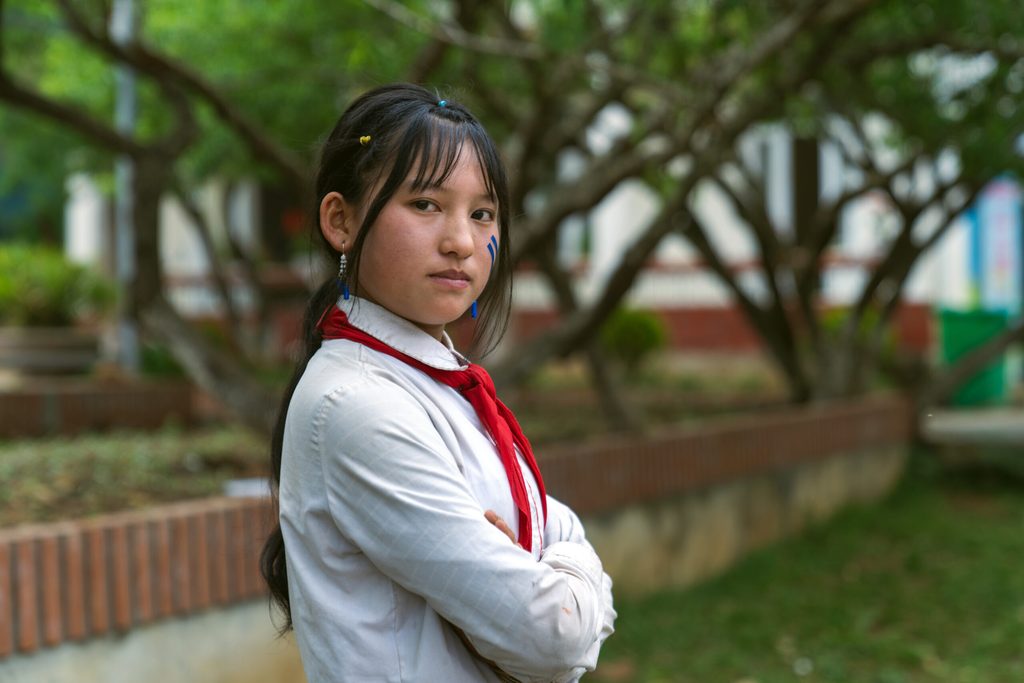
“Even with many risks, smartphones are a crucial part of how we girls learn about the outside world,” she said.
However, the risks are there. In Tho`s class alone, three girls have entered an early marriage after first meeting online. Tho tries to remain vigilant when surfing the web.
“I use social media to chat and make friends with people all over Vietnam. But I friend request girls more so than boys because I know the dangers of getting lured into human trafficking,” she said.
Yet, despite her awareness, a lack of confidence and ability to confront a potential child marriage situation leaves her and her classmates feeling helpless.
“When my friends and I find out another girl is chatting with a boy in another province, we try to warn them off and keep an eye on them to see if they’re skipping school to meet the boy. But we don’t dare to try to stop it or to tell parents or teachers.”
“But we don’t dare to try to stop it or to tell parents or teachers.”
Due to common experiences like Tho’s, improving digital literacy levels and online safety skills is a top priority of the project. Through specially developed training packages and educational videos, both online and face-to-face, it is hoped more and more will understand the potential risks and pitfalls in the digital world. As well as the creation of a new platform to advise and inform on the dangers of child marriage.
This platform – the Girls’ Rights Platform – encourages dialogue, information, and exchange on girls and women’s rights issues. It helps protect ethnic minority girls, boys, and young women and men from the risks of child marriage – Tho can now direct her friends in danger of child marriage to the platform.
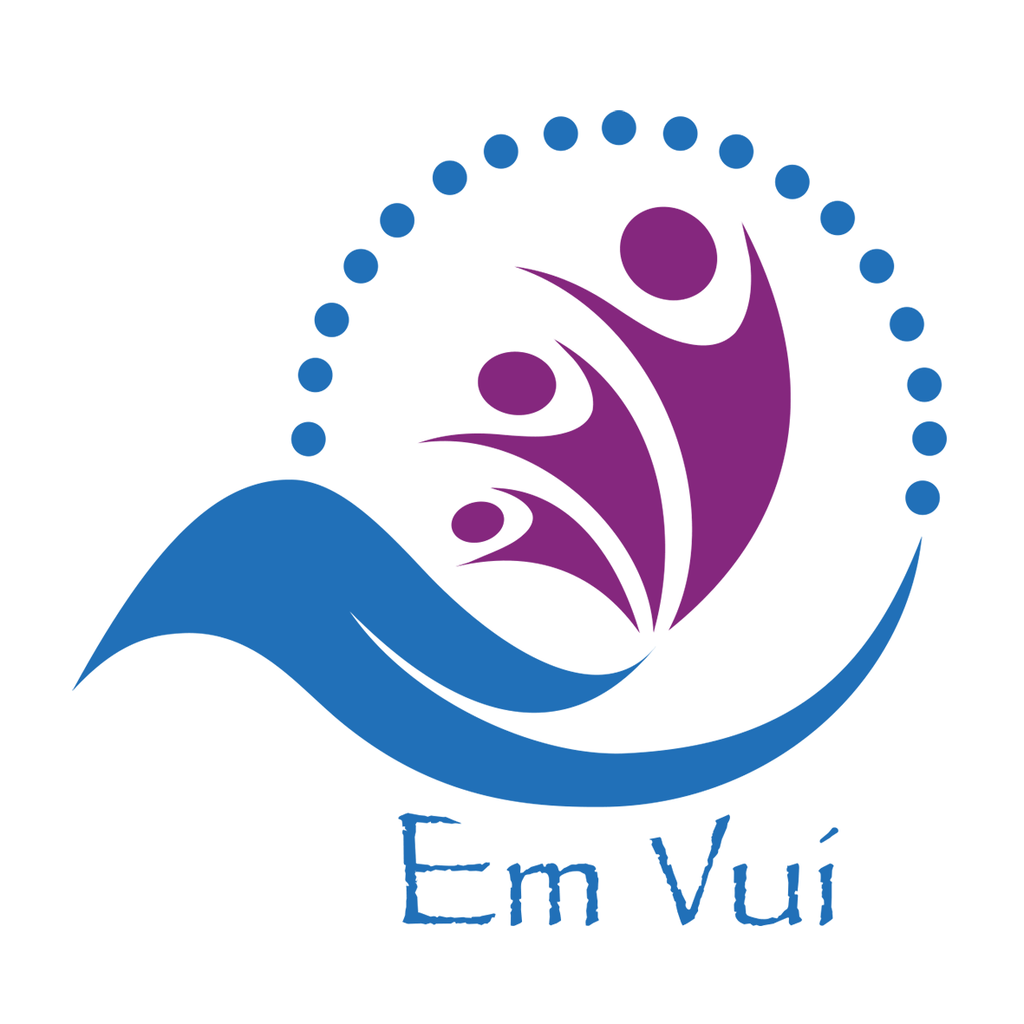
The platform is uniquely designed to be ‘data light,’ meaning it can be accessed in remote areas where internet connectivity is not as strong. Essential information shared on the platform will be handed out as an infographic leaflet to those without internet.
Hue, 18 years old, believes the platform can be advantageous for girls in remote communities, like her Huc commune in the Huong Hoa district.
“Girls will be able to learn about their rights, adolescent reproductive health, professional career orientation, access to decent jobs and other topics to help them continue education and avoid early marriage and adolescent pregnancies.”
After one year, the platform has proved to be a valuable tool, not just for raising awareness of child, early, forced marriage and human trafficking, but also issues such as education opportunities, economic empowerment, and safe migration – which all contribute to preventing child marriage.
More than two-thirds of the Vietnamese population are active internet users. As the digital world begins to dominate the lives of the Vietnamese youth, it is important that they are better equipped with the tools to protect themselves and advocate for greater protection.
Thoughts echoed by Hue: “Information means a lot and they help us access solutions and opportunities. Small and simple steps can take us far and help us live our dreams.”
Education, Emergencies, Girls Get Equal, Protection from violence, Sexual and reproductive health and rights, child marriage, Comprehensive sexuality education, COVID-19, Teenage pregnancy, Youth in media
